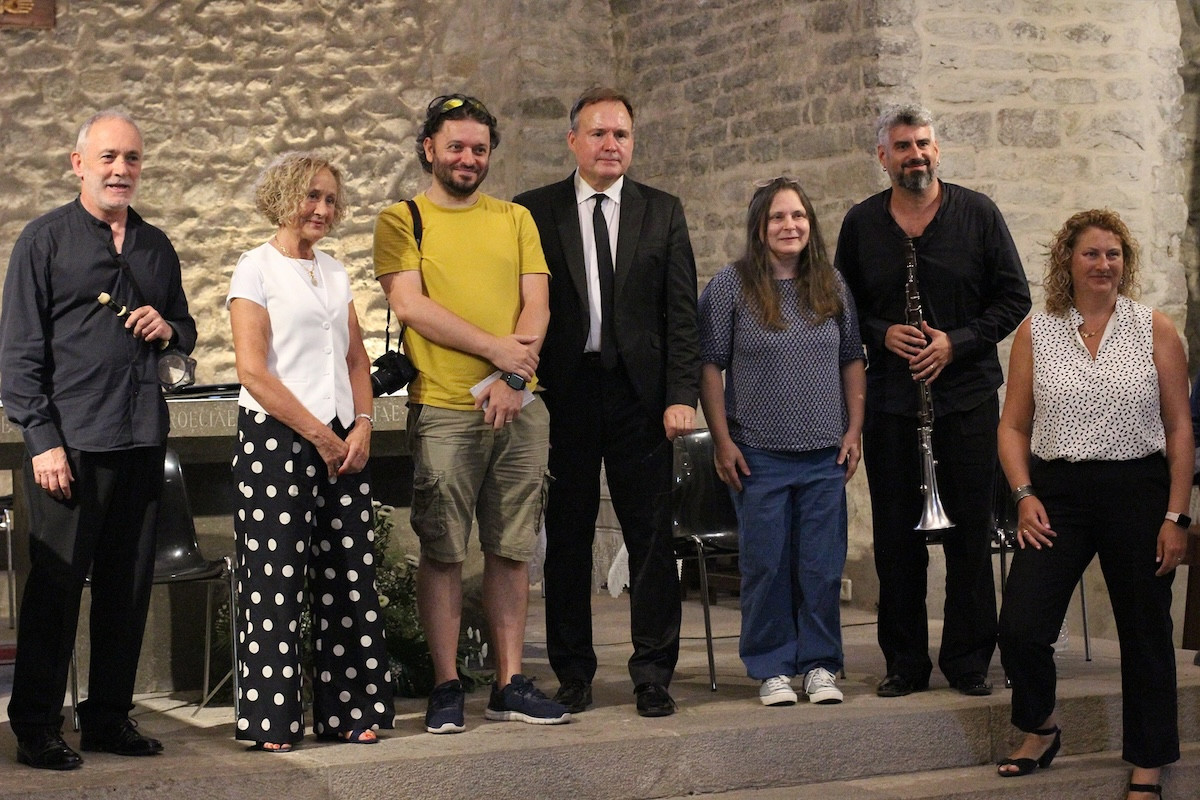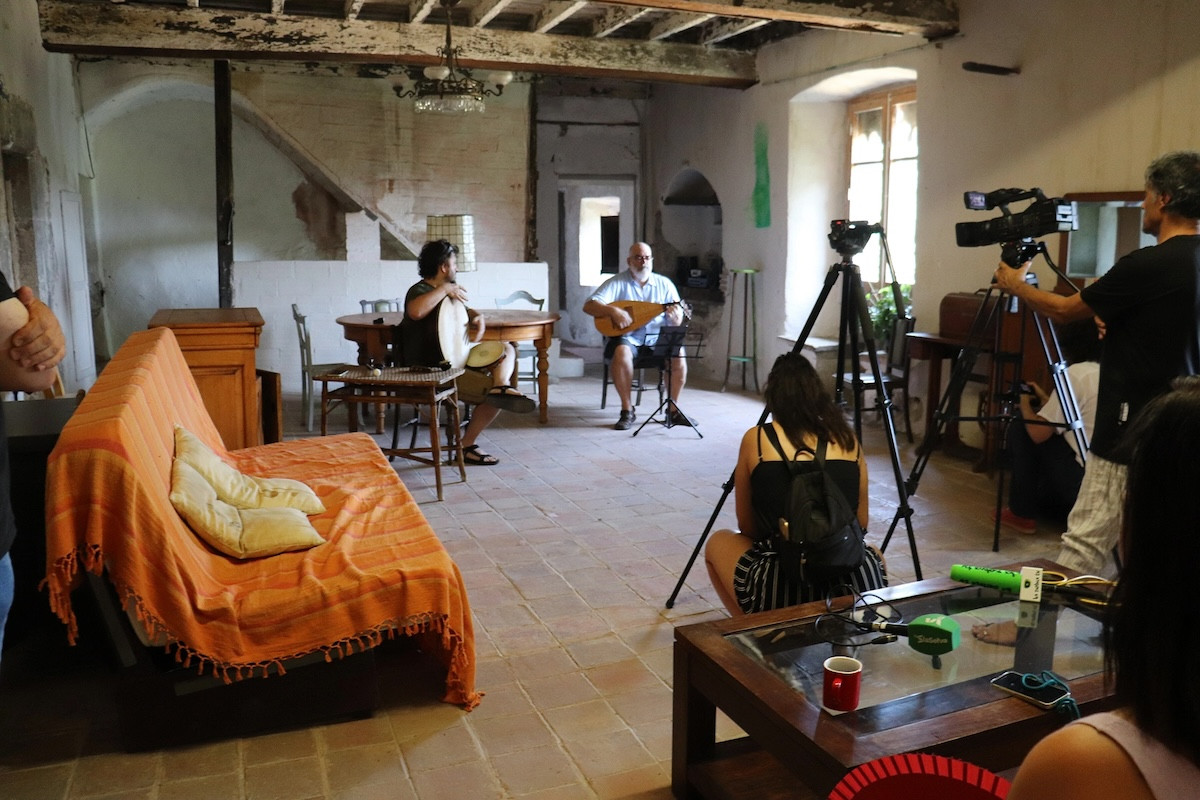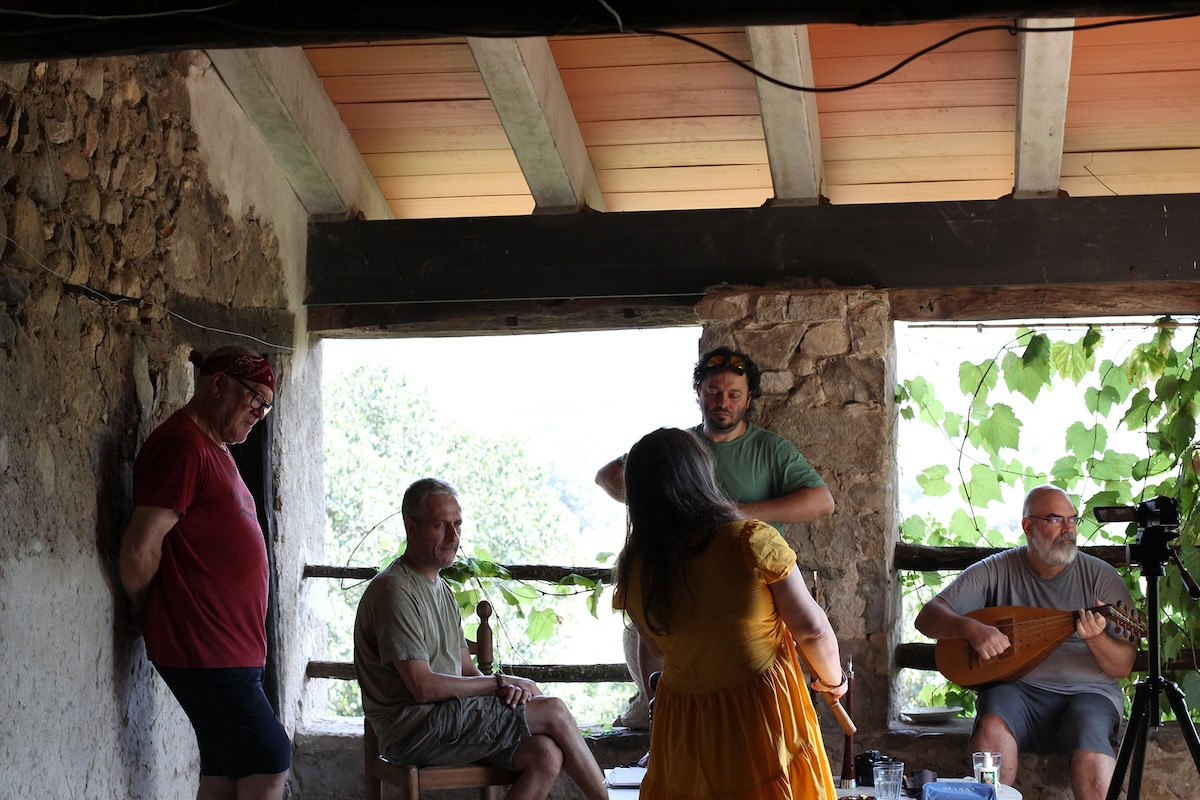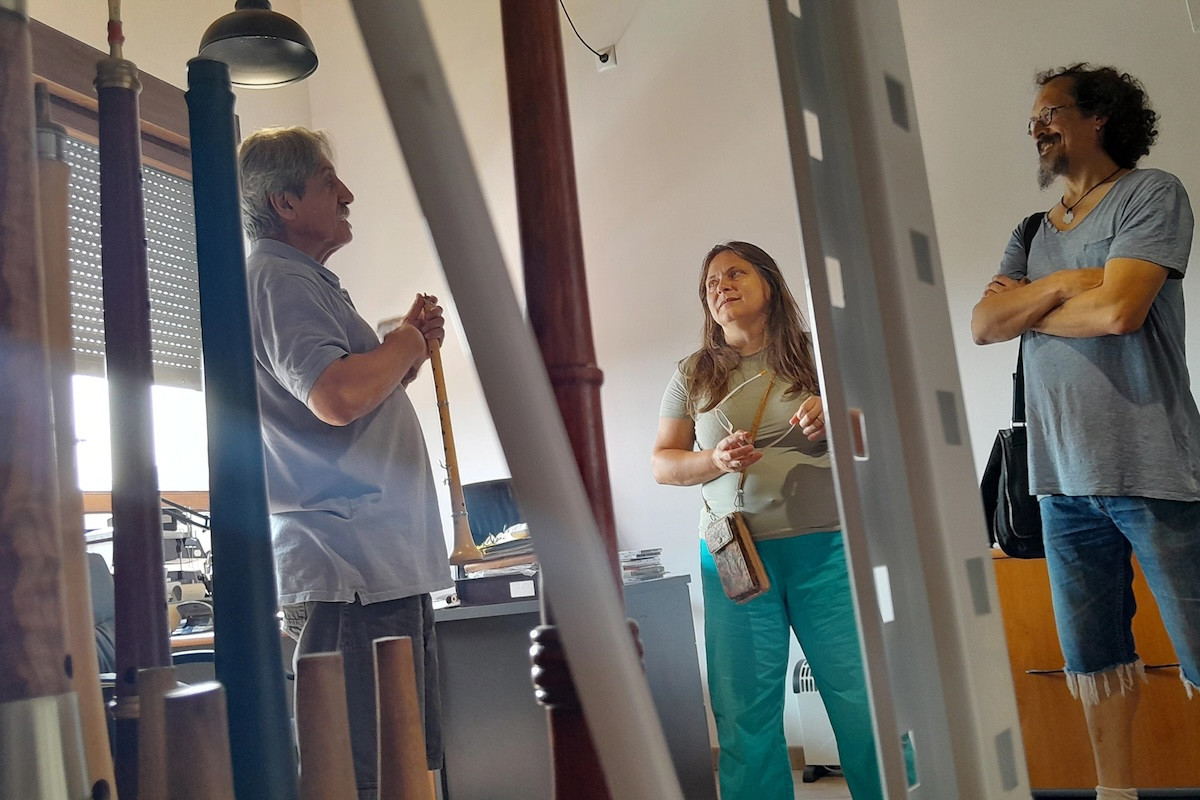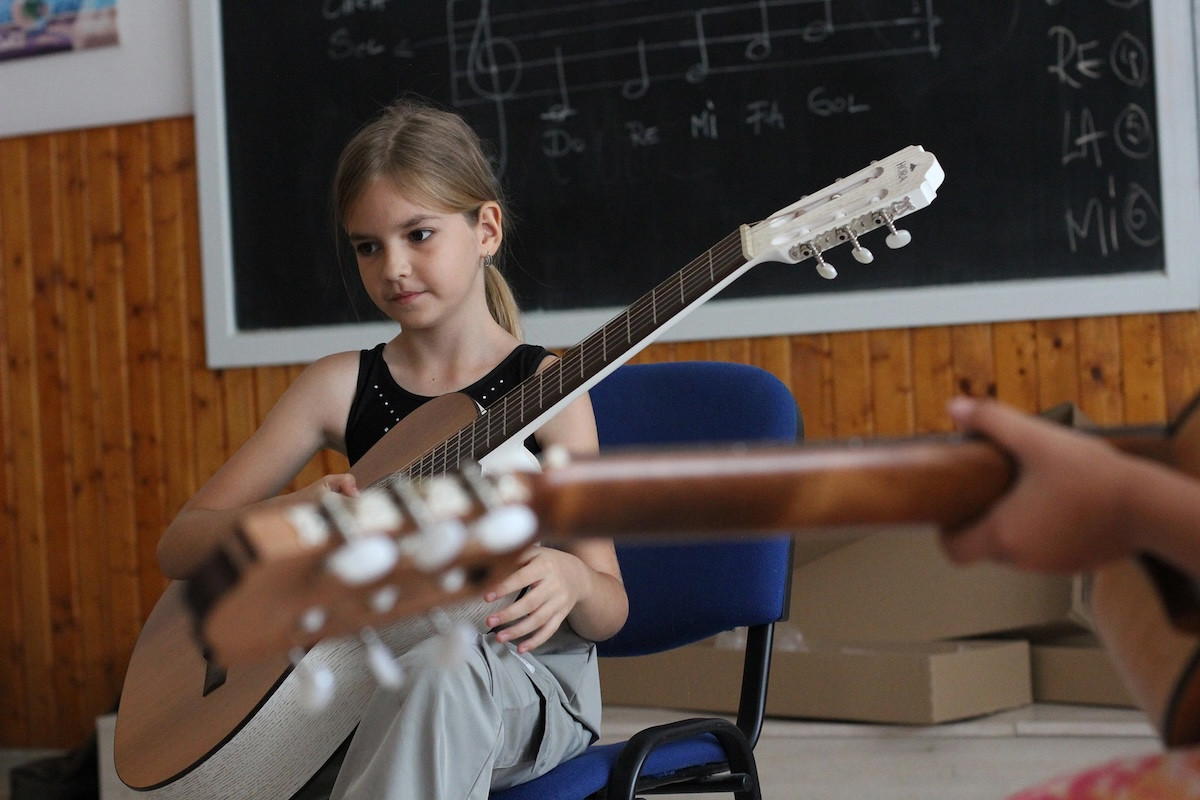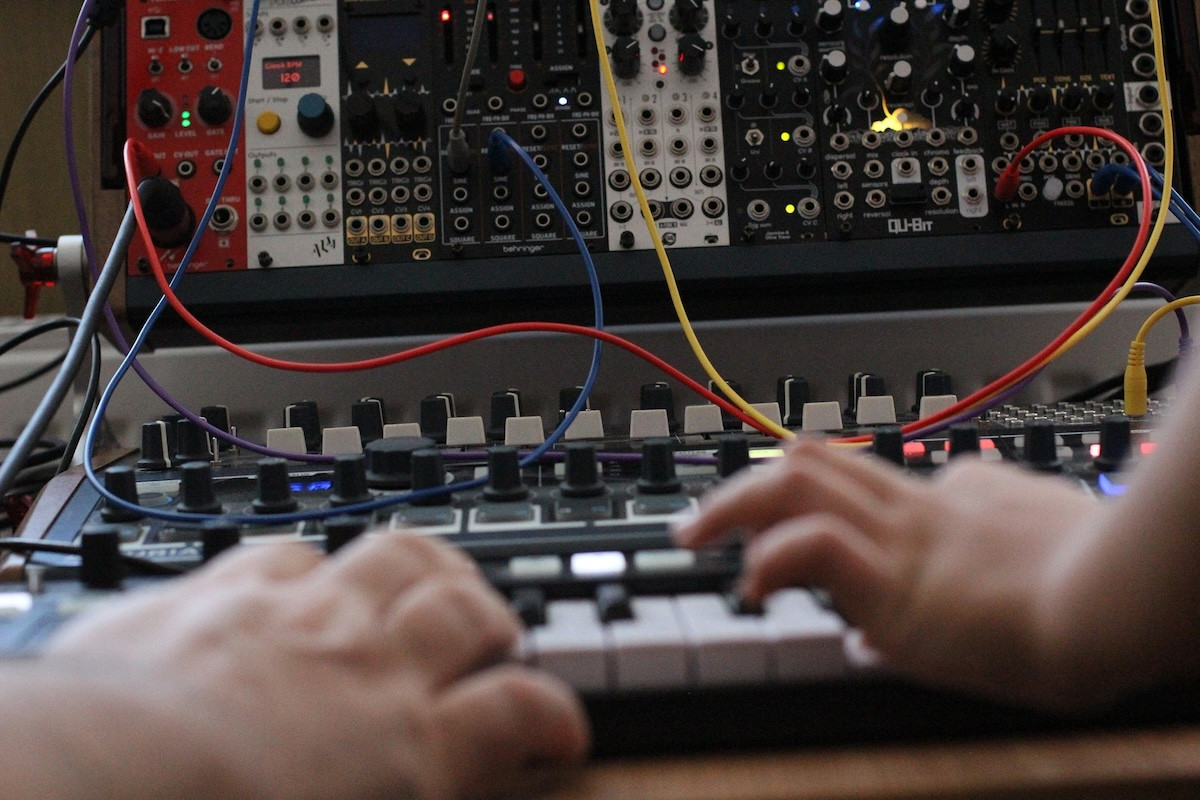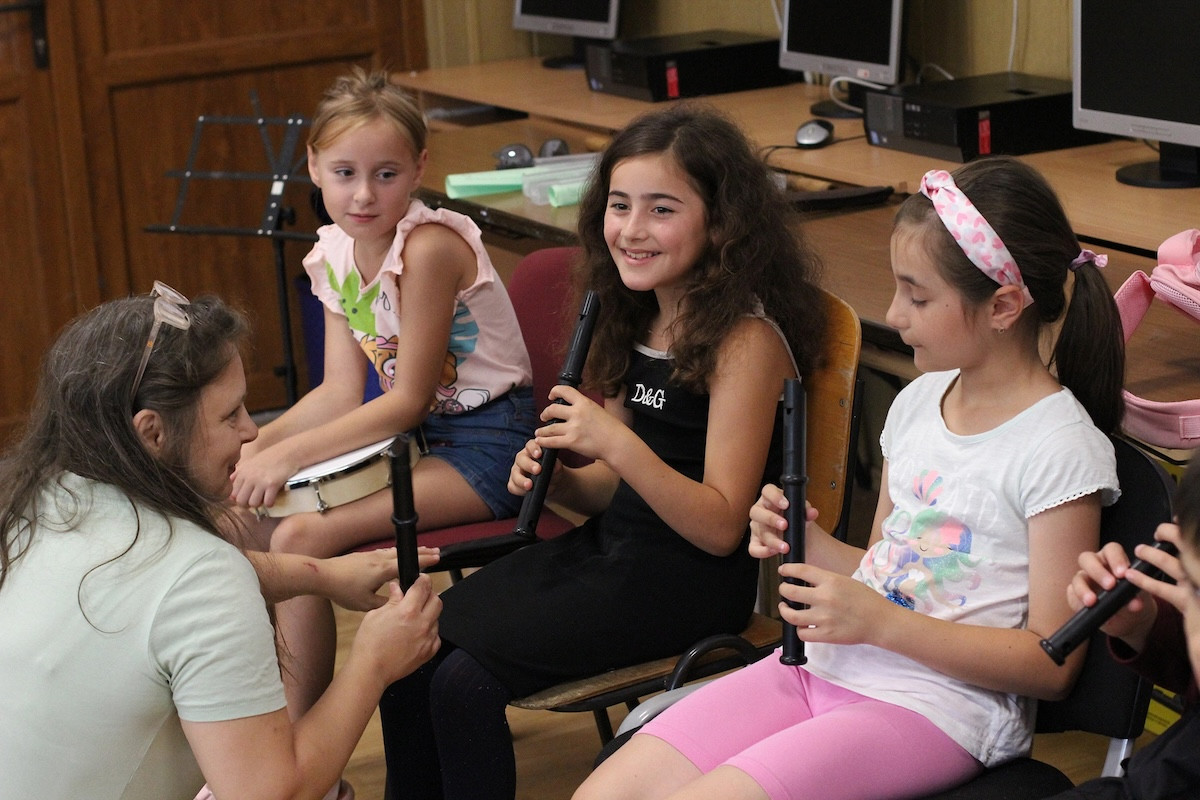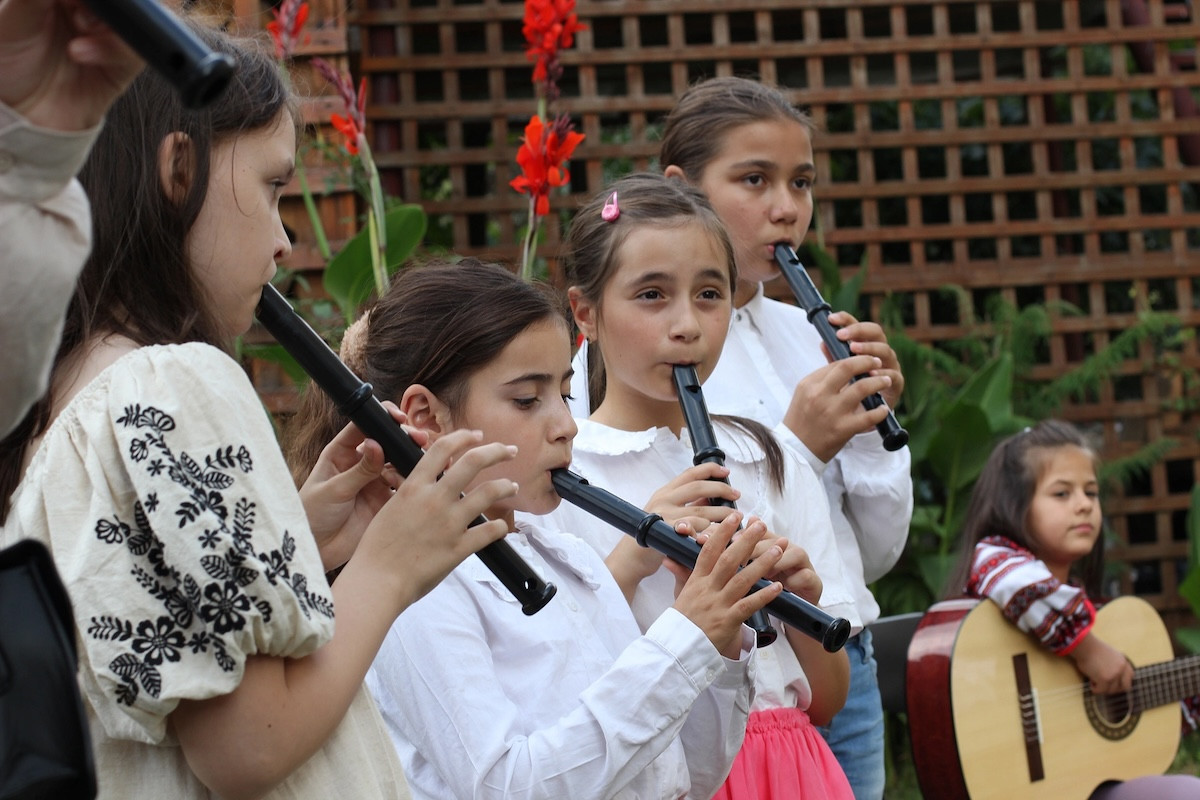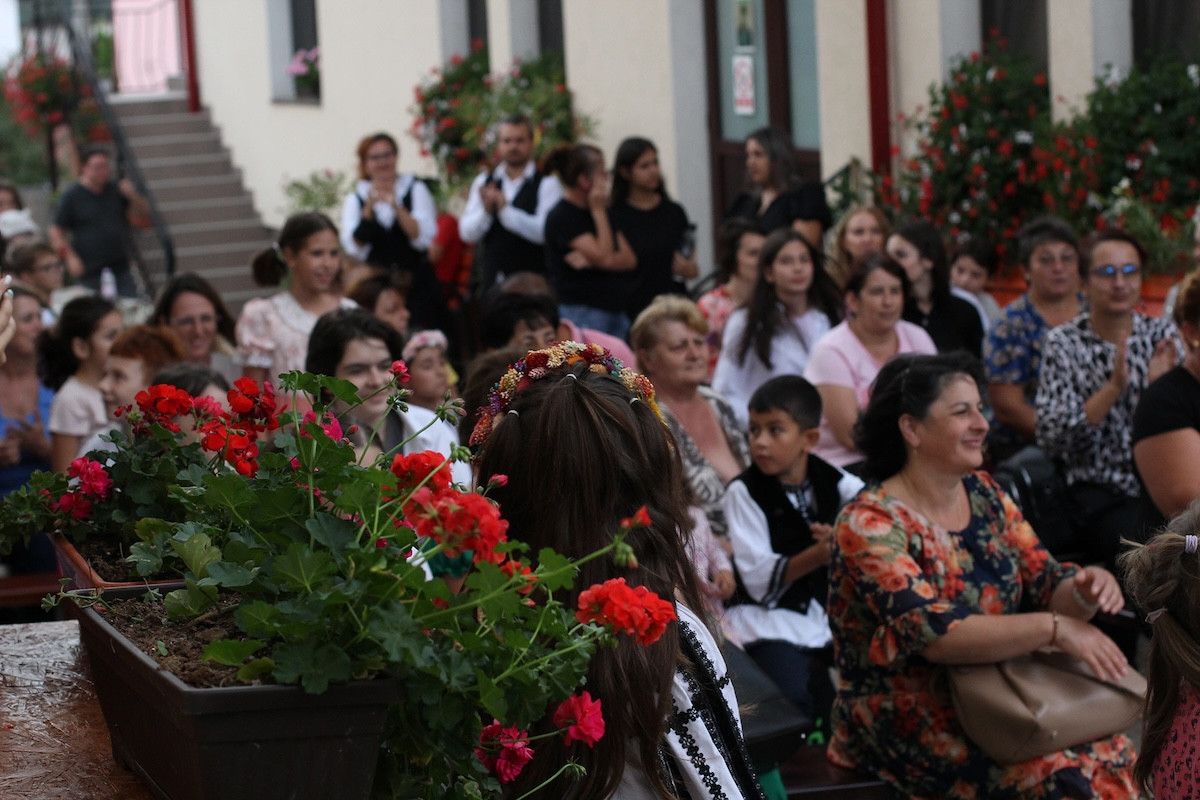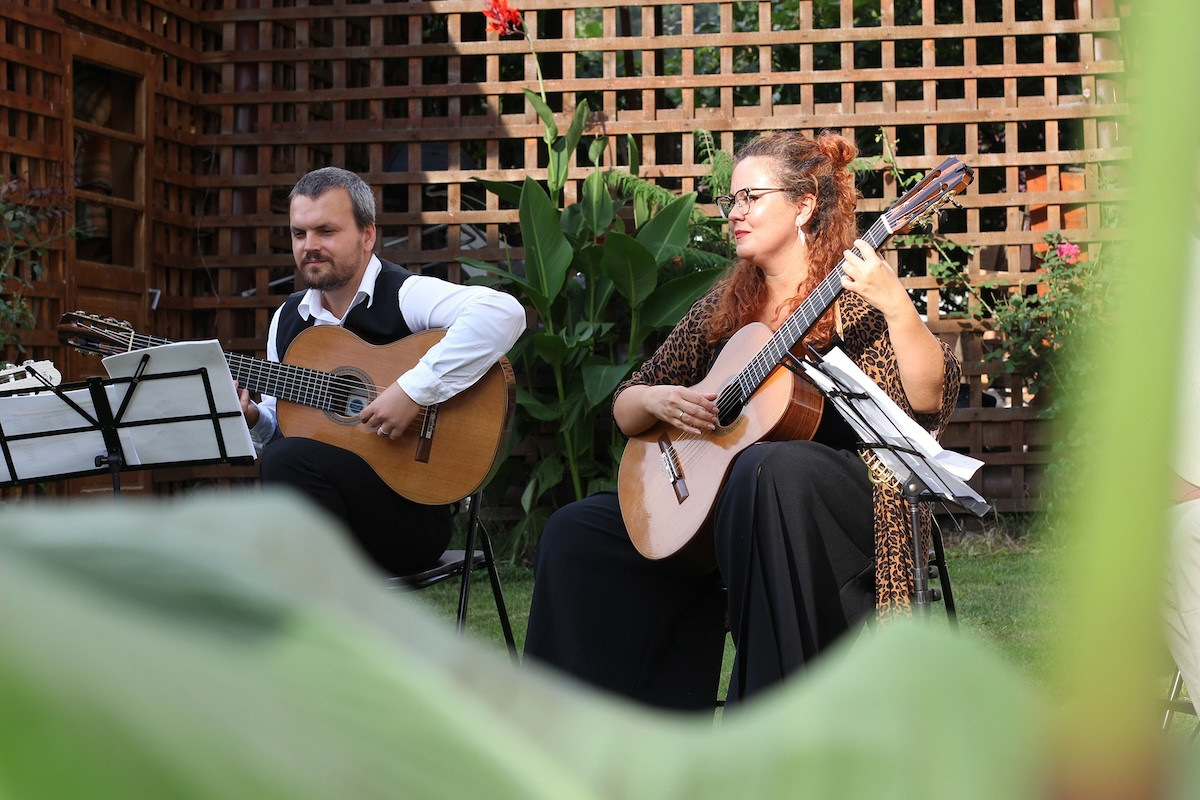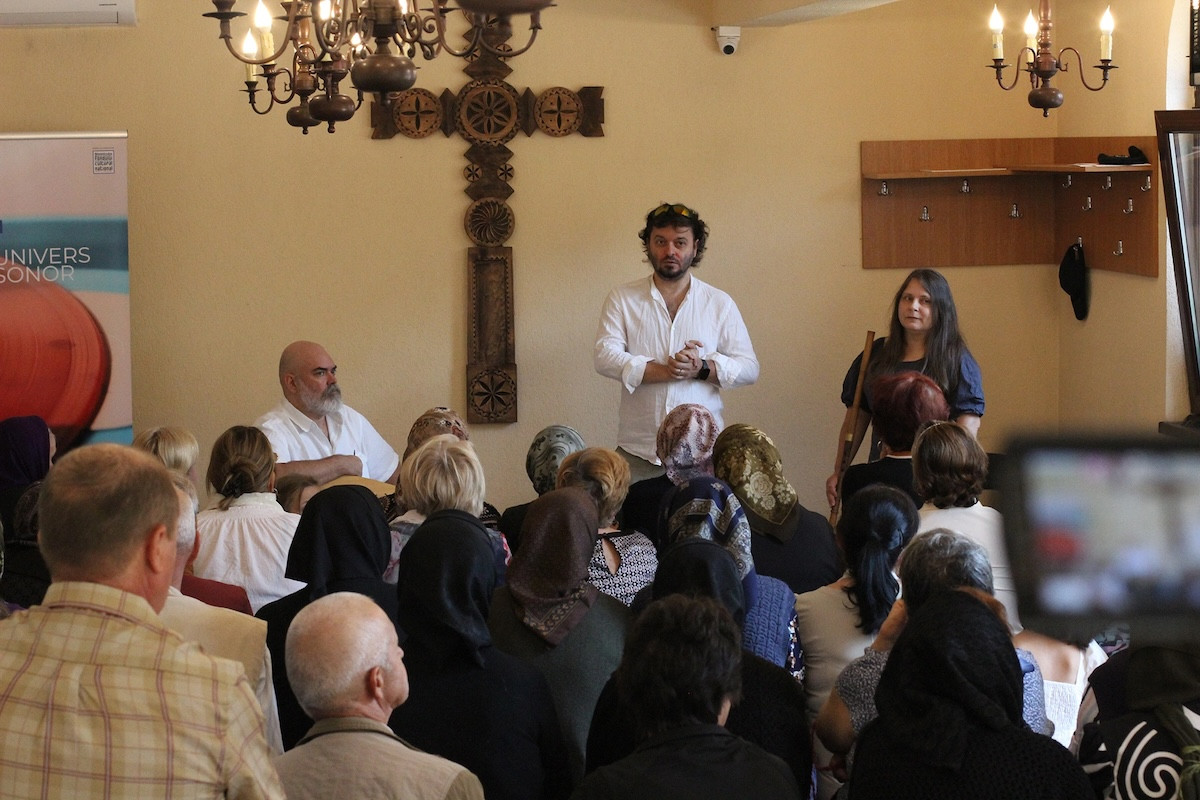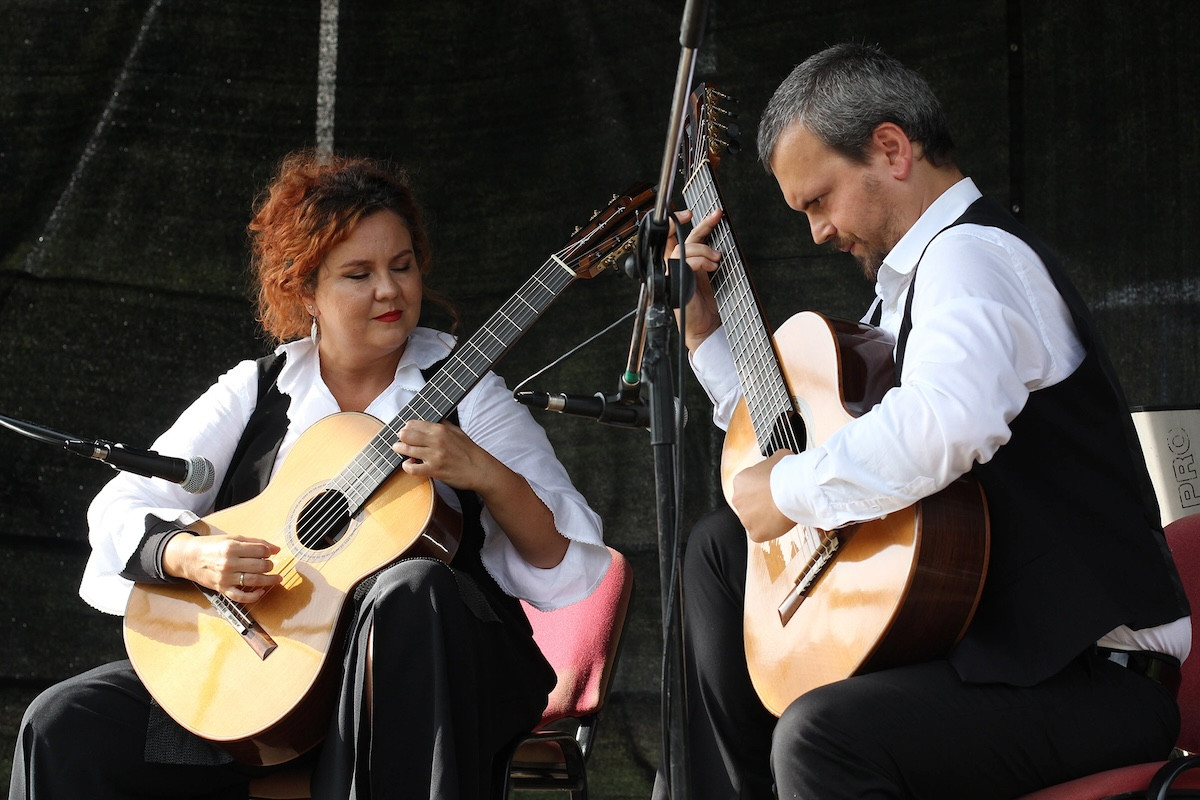The project „Univers Sonor”organized by ISVOR Cultural Association in partnership with Cultural Management Idea ended successfully, celebrating the deep cultural connections between Romania and Catalonia through a unique combination of tradition, research and modern technology. The choice of the name of the project – identical in form and meaning in Romanian and Catalan – emphasized the linguistic connection between the two Romance languages, which share approximately 1500 common wordsproviding a symbolic framework for cultural and artistic dialogue.
A “Sound Universe” of traditions and innovation
The project brought together traditional music and multimedia technologies in a series of activities between August 8 and September 6, 2024in Catalonia and Romania.
Photo credit:Cristian Stanoiu
Stage in Catalonia: sound dialogues and cultural exchanges
In Catalonia, Can Clos Cultural Center from La Cellera de Ter was the host of a musical residency dedicated to the research of the Catalan sound heritage. The project team (consisting of Cătălin Ștefănescu Pătrașcu, Oana Ivașcu, Daniel Ivașcu – musicians and Cristian Stănoiu – visual artist) realized field records and interacted with local artists, organizing demonstration workshops for the presentation of traditional Romanian instruments, such as the cobza, the caval and the Oltene whistles. The creative research stage in Catalonia was made possible thanks to the partnership with Cultural Management Ideathe administrator Can Clos Cultural Centerand the support offered by La Cellera de Ter City Hall.
Photo credit: Cristian Stanoiu
Among the special moments of this stage were:
- Meeting with Friends of the Crowa traditional Catalan music group, which facilitated a substantial cultural exchange, including improvisation sessions, mini-recitals, exchanges of sheet music, instruments and CDs.
- Participation in Major Amer Partyfestival where memorable meetings took place with bands such as Arjau (trio of habaneras), couple Principal d’Olot and Main Song of the Bisbal (traditional Catalan ensemble).
- Applied discussions of specific technique and practical demonstrations with Francesc Sans Sastre, luthier experienced in traditional Catalan musical instruments, on the occasion of the visit to the Sans Luthier shop and workshop.
Photo credit: Cristian Stanoiu
The Romanian stage: creativity and community
In the Malaia commune, local children were involved in interactive workshops in the framework Summer Music Schoolswhere they discovered instruments specific to both cultures – whistles, flabiol, cobza, guitar, percussion – and experienced electronic music with modular synthesizers. Activities included field recording sessions, auditions and recitals. The Summer Music School was made possible thanks to the co-financing offered by the Malaia City Hall.
Photo credit: Cristian Stanoiu
A special moment was provided by the recitals in the courtyard of the “St. Pious Paraschiva” – Malaia Parish and from Social-Pastoral Center “St. Cosmas and Damian”supported by both the participating children and the bands Duo Kitharsis and Image of the World. Also, the Duo Kitharsis band offered a recital of Spanish and Romanian music to the entire community on the scene of the town’s celebration, The days of the Commune of Malaya (Valcea).
Photo credit: Cristian Stanoiu
An end marked by creation: the “Univers Sonor” album
The project ends with the release of the album „Univers Sonor”made by the ensemble Image of the World. Inspired by research conducted in Catalonia and Romania, the album integrates traditional elements and contemporary technologies, using traditional instruments, electronic music and sound recordings made during this summer. Respecting the concept, the 10 tracks on the “Univers Sonor” album were titled using words with the same form and meaning in Romanian and Catalan, such as “Amor”, “Joc”, “Memoria”, “Sentiment”, “Fum” or ” Friend”. The album was recorded in the composition Oana Ivascu – oboi, caval, flabiol; Cătălin Ștefănescu Patrascu – compositions, classical guitar, electroacoustic guitar, string instrument, electronic instruments; Stefan Barbu – violin; Adrian Buciu – lull; Andreea Timiras – cello; Daniel Ivascu – tabor, cajon, bendir, frame drum; alongside Bogdan Vuluta – musical direction and Andrei Barbu – mastering.
As usual, the musical pieces are accompanied by video-art works signed by Cristian Stanoiuvisual comments bearing the imprint of the same experiences – from Cellera de Ter to Malaia.
The music album will be available on online streaming networks and on the project’s bilingual websitealongside the video art works, documentary photos and artistic productions made together with the children of Malaya.
Conclusions and perspectives
„Univers Sonor” managed to create a unique space for collaboration and learning, exploring the cultural similarities and differences between Catalonia and Romania, thanks to the involvement and support provided by Francesc Xavier Farrés Berenguer, Monika Grygier (Idea Gestión Cultural) and Gheorghe Dinculescu (mayor of the commune of Malaia). The ISVOR Cultural Association remains dedicated to the mission of promoting musical heritage and bringing communities together through initiatives that combine tradition with innovation.
„Univers Sonor” is a cultural project organized by ISVOR Cultural Associationco-financed by Administration of the National Cultural Fund (AFCN). With the support of: Malaia Town Hall, La Cellera de Ter Town Hall. Partners: Idea Gestión Cultural Association, Can Clos Cultural Center, Malaia High School, St. Reverend Paraschiva – Malaia Parish, Social-Pastoral Center “St. Cosmas and Damian”.
Media partners: Bookhub, Cărturești, ConnectArts, Curatorial, Happ.ro, IQads, Iscoada, LIFE.ro, Mindcraft Stories, Observator Cultural, Palindrome, Radio București FM, Radio Romania Cultural, Radio Romania Muzical, Romania Pozitivă, Spotmedia, The Institute , Tribuna Vâlceană, TV La Selva, Zeppelin, Ziarul Metropolis, Days and Nights.
The project does not necessarily represent the position of the National Cultural Fund Administration. AFCN is not responsible for the content of the project or how the results of the project may be used. These are entirely the responsibility of the beneficiary of the funding.
Source: www.iqads.ro


